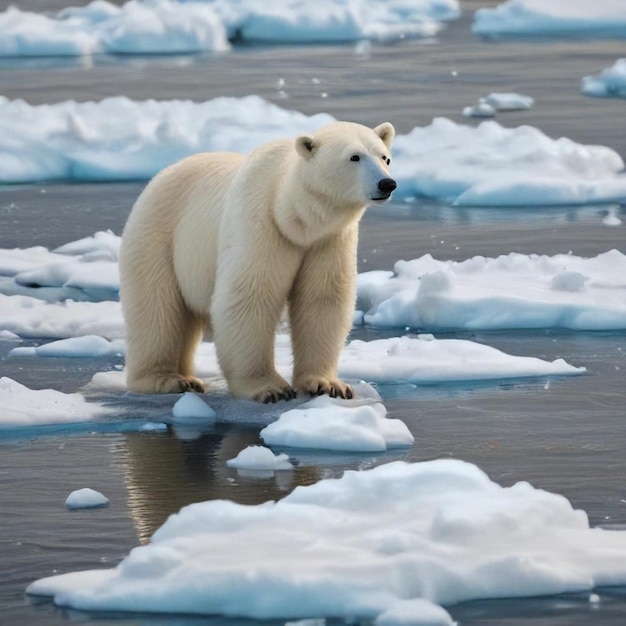Blog details

Climate Change Crisis - The threat is real !!!
Climate Change is one of the most pressing issues of our time, posing a significant threat to the health of our planet and its inhabitants. The scientific consensus is clear: human activities, particularly the emission of greenhouse gases, are dramatically altering the Earth's climate. In this article, we'll explore the alarming effects of climate change on the environment and discuss potential solutions.
What is Climate Change?
Climate change refers to the long-term warming of the planet due to an increase in average global temperatures. This warming is primarily caused by human activities such as:
1. Burning fossil fuels (coal, oil, and gas)
2. Deforestation and land-use changes
3. Agriculture and livestock production
These activities release massive amounts of carbon dioxide, methane, and other greenhouse gases into the atmosphere, trapping heat and leading to global warming.
Environmental Impacts
Climate change has far-reaching consequences for the environment:
1. Rising Sea Levels: Melting glaciers and ice sheets contribute to sea-level rise, threatening coastal ecosystems and communities.
2. Extreme Weather Events: Climate change intensifies heatwaves, droughts, floods, and storms, causing devastating damage to infrastructure and ecosystems.
3. Water Scarcity: Changes in precipitation patterns and increased evaporation due to warmer temperatures exacerbate water scarcity.
4. Loss of Biodiversity: Climate change alters ecosystems, leading to extinction, migration, and disruption of species interactions.
5. Ocean Acidification: Increased CO2 absorption by oceans harms marine life, especially coral reefs and shellfish.
Regional Impacts
Climate change affects different regions in distinct ways:
1. Arctic: Melting sea ice and thawing permafrost threaten polar bears, indigenous communities, and global weather patterns.
2. Africa: Droughts, floods, and heatwaves compromise food security, human health, and economic stability.
3. Asia: Rising sea levels and intense storms jeopardize coastal cities, agriculture, and water resources.
4. Americas: Heatwaves, wildfires, and extreme weather events devastate ecosystems and human settlements.
Human Health Impacts
Climate change has significant implications for human health:
1. Heat-Related Illnesses: Warmer temperatures increase heat stress, heat strokes, and cardiovascular diseases.
2. Respiratory Issues: Air pollution and wildfires exacerbate respiratory problems.
3. Vector-Borne Diseases: Changing temperatures and precipitation patterns spread diseases like malaria, dengue fever, and Zika virus.
4. Mental Health: Climate-related stress, anxiety, and trauma affect mental well-being.
Solutions and Mitigation Strategies
To combat climate change, we must:
1. Transition to Renewable Energy: Shift from fossil fuels to solar, wind, and hydroelectric power.
2. Sustainable Food Choice: Shift from meat to plant based diet
3. Carbon Capture and Storage: Develop technologies to capture and store CO2 emissions.
4. Sustainable Land Use: Implement reforestation, agroforestry, and permaculture practices.
5. Climate-Resilient Infrastructure: Design and build infrastructure adaptable to climate change.
International Cooperation and Policy
Global agreements and policies are crucial:
1. Paris Agreement: Limit global warming to 1.5°C above pre-industrial levels.
2. United Nations Sustainable Development Goals: Address climate change through sustainable development.
3. Climate Finance: Mobilize funding for climate change mitigation and adaptation.
Conclusion
Climate change poses an existential threat to our planet. We must act collectively to reduce greenhouse gas emissions, transition to renewable energy, and adapt to the changing climate. Individual actions, policy changes, and international cooperation can help mitigate the devastating impacts of climate change.
References
1. IPCC (2020). Climate Change 2020: Impacts, Vulnerability, and Adaptation.
2. NASA (2020). Climate Change: How Do We Know?
3. National Oceanic and Atmospheric Administration (2020). Climate Change: Global Temperature.
Recommended Reading
1. "The Uninhabitable Earth" by David Wallace-Wells
2. "Climate Change: A Very Short Introduction" by Mark Maslin
3. "Drawdown: The Most Comprehensive Plan Ever Proposed to Reverse Global Warming" by Paul Hawken
Join the fight against climate change:
1. Reduce your carbon footprint
2. Support sustainable food choices
3. Advocate for climate policies
4. Educate others on climate change impacts
5. Participate in climate activism and events
Together, we can mitigate the effects of climate change and create a sustainable future.


